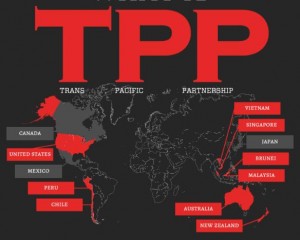Trans Pacific Partnership governments are trying to convince stakeholders that the controversial Investor-State Dispute Settlement (ISDS) mechanism in the agreement is an improvement over those found in previous trade agreements. ISDS rules in NAFTA have allowed Eli Lilly to sue Canada over its standards of patentable subject matter. Tobacco companies have used ISDS to sue Uruguay and Australia over health measures which the companies say encroach on their trademark rights.
The negotiators want to convince the general public that corporations will have a more difficult time using the new ISDS system.
Malaysian International Trade and Industry Minister Datuk Seri Mustapa Mohamed told the press that the ISDS language had been modified, taking into account the experience of ISDS cases, including those from Australia and Ecuador. He further said that the new ISDS language requires firms to meet with governments before any action is launched.
USTR has released a fact sheet about the changes to the ISDS chapter, stating that in the final text “countries retain the right to regulate in the public interest, including on health, safety, the financial sector, and the environment; … an investor bears the burden to prove all elements of its claims, including claims on the minimum standard of treatment (MST); … a new standard permit[s] governments to seek expedited review and dismissal of claims that are manifestly without legal merit; … the mere fact that a government measure frustrates an investor’s “expectations” does not itself give rise to an MST claim; … [and] TPP countries will provide detailed additional guidance on arbitrator ethics and issues of arbitrator independence and impartiality.”
As Inside U.S. Trade reports, many observers are skeptical: ” ‘Until the text is released, it is impossible to verify whether any of these claims of ‘significant changes’ are actually in the text or not,’ said Howard Mann, senior international law adviser to the International Institute for Sustainable Development.”
For more on ISDS in the TPP, see:
- Sean Flynn. Frequently Asked Questions on IP and TPP Investor State Dispute Settlement (ISDS).
- Public Citizen. Debunking Ten Common Defenses of Controversial Investor-State Corporate Privileges.





